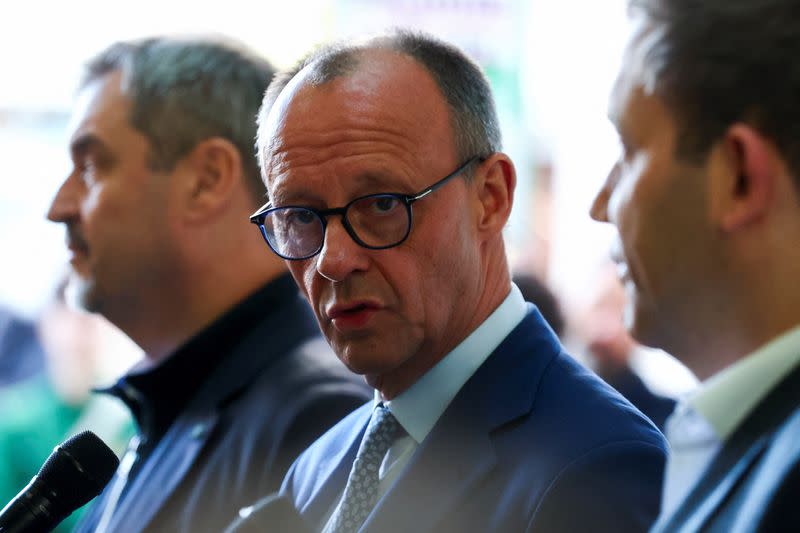Germany’s political landscape is teetering on the edge of upheaval, and Friedrich Merz, the conservative leader poised to become the nation’s next chancellor, finds himself at the heart of the storm. On April 7, 2025, Merz stepped into the spotlight, vowing to refocus his agenda on competitiveness and economic stability after a bruising weekend that saw his Christian Democratic Union (CDU) falter in the face of mounting challenges. From sliding poll numbers to tariff-induced market chaos and grumbling allies, Merz’s path to leadership is proving anything but smooth.
The latest blow came over the weekend when a poll revealed the far-right Alternative für Deutschland (AfD) drawing level with Merz’s CDU-led conservative bloc for the first time in post-war history. This seismic shift, with both parties hovering around 24-27% support, underscores a growing dissatisfaction among voters—many of whom feel betrayed by Merz’s post-election pivot on fiscal policy. Having campaigned as a champion of Germany’s storied fiscal discipline, Merz stunned supporters by pushing through a constitutional amendment allowing up to a trillion euros in new debt. The move, brokered with the outgoing Social Democrats (SPD) and Greens, aimed to fund infrastructure, defense, and climate initiatives—but it’s left his base reeling and his credibility on the line.
Adding fuel to the fire, U.S. President Donald Trump’s recent announcement of sweeping tariffs—25% on steel, aluminum, and cars, plus 20% on nearly all other goods—has sent shockwaves through Germany’s export-driven economy. Stock and bond markets plummeted on Monday, April 7, as investors braced for a potential recession, with the Sentix survey showing eurozone sentiment at its lowest in over a year. For Merz, whose victory in the February 23 election was narrower than anticipated at 28.5%, the timing couldn’t be worse. His promise of a pro-business agenda now hangs in the balance as Germany’s auto industry, a cornerstone of its economic might, faces an existential threat.
Merz isn’t just battling external forces—his allies are turning on him too. Within his conservative camp, murmurs of discontent are growing louder. Some accuse him of conceding too much to the SPD in ongoing coalition talks, particularly on migration and debt policies. The SPD, despite a weak electoral showing, holds leverage as Merz’s only viable partner to form a government, given the mainstream parties’ refusal to work with the AfD. Yet, every compromise risks further alienating his base, who expected a hardline stance on key election issues like migration and red tape reduction.
On Monday, Merz struck a defiant tone, telling reporters in Berlin, “The situation on the international equity and bond markets is dramatic and threatens to deteriorate further. It is therefore more urgent than ever for Germany to restore its international competitiveness as quickly as possible.” His plan? A renewed push for deregulation, tax incentives, and a coordinated EU response to Trump’s tariffs. But with coalition negotiations dragging into their second month and the AfD capitalizing on every misstep, time is not on his side.
The stakes are sky-high. Germany faces a confluence of crises—a flagging economy, a resurgent Russia, and an unreliable U.S. ally—that demand decisive leadership. Merz has until Easter to finalize a coalition and take office, but the cracks in his coalition are widening. If he can’t regain the initiative, the chancellor-in-waiting risks becoming a footnote in a nation desperate for stability. For now, Merz’s fate—and Germany’s—hangs in a delicate balance.




